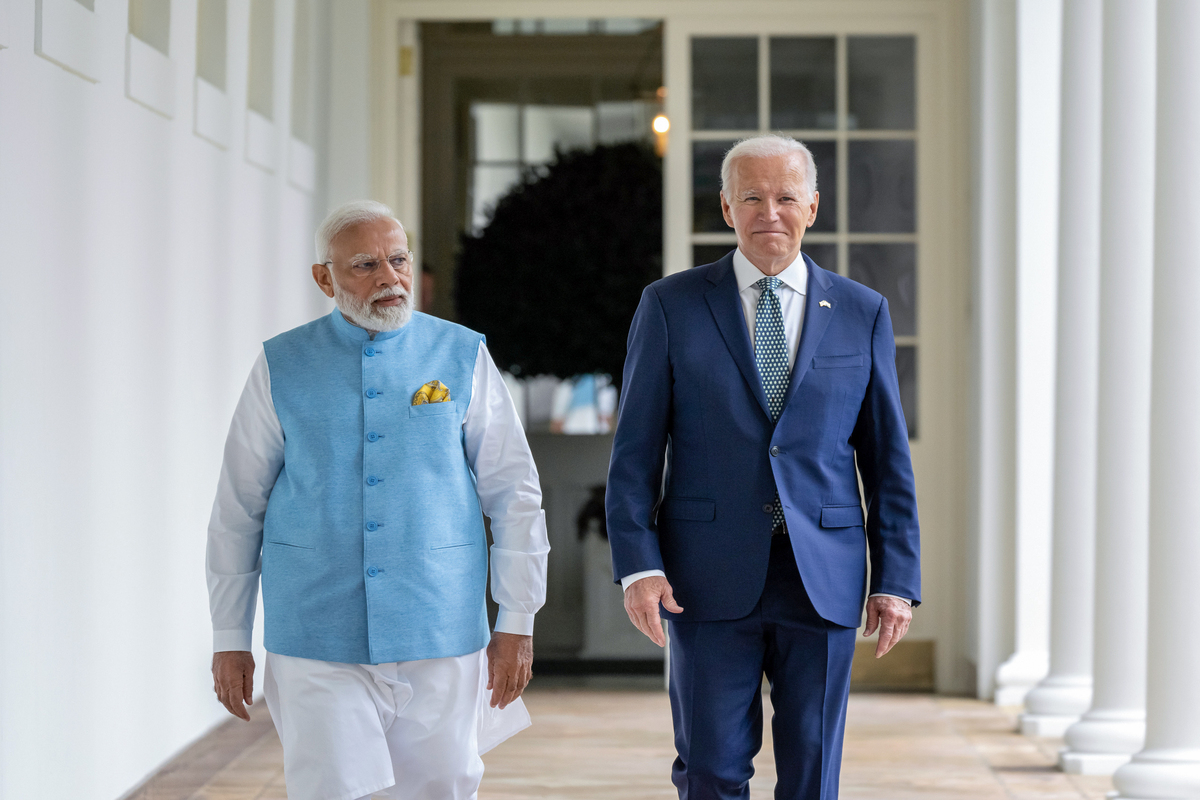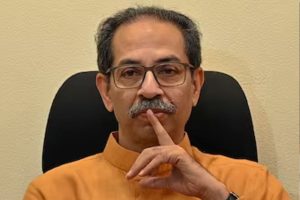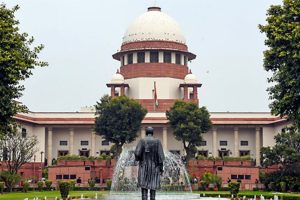India and the United States have declared themselves as “among the closest partners in the world,” affirming the India-US Comprehensive Global and Strategic Partnership as anchored in a new level of trust and mutual understanding, and the two nations will advance aspirations of their people, upholding human rights, shared principles of democracy, freedom, and the rule of law.
This is stated in the India-US Joint Statement issued during the current Official State visit of Prime Minister Narendra Modi to the USA.
Advertisement
Touching on the Indo-Pacific, the statement says: “Our cooperation will serve the global good as we work through a range of multilateral and regional groupings – particularly the Quad– to contribute toward a free, open, inclusive, and resilient Indo-Pacific.”
Prime Minister Modi and President Biden affirmed that technology will play the defining role in deepening the partnership. The leaders hailed the inauguration of the Initiative on Critical and Emerging Technology (iCET) in January 2023 as a major milestone in India-US relations.
They called on their governments, businesses, and academic institutions to realize their shared vision for the strategic technology partnership. The leaders recommitted the United States and India to fostering an open, accessible, and secure technology ecosystem, based on mutual confidence and trust that reinforces their shared values and democratic institutions.
Indicating the spheres of cooperation in coming years, the two leaders set a course to reach new frontiers across all sectors of space cooperation. The leaders applauded the two countries’ growing cooperation on earth and space science, and space technologies.
They welcomed the decision of NASA and ISRO to develop a strategic framework for human spaceflight cooperation by the end of 2023.The leaders hailed the announcement by NASA to provide advanced training to Indian astronauts at the Johnson Space Center in Houston, Texas, with a goal of mounting a joint effort to the International Space Station in 2024.
The two leaders celebrated the delivery of the NASA-ISRO Synthetic Aperture Radar (NISAR) satellite to ISRO’s U R Rao Satellite Centre in Bengaluru, India, and looked forward to NISAR’s 2024 launch from India.
Welcoming India’s Space Policy – 2023, the leaders called for enhanced commercial collaboration between the U.S. and Indian private sectors in the entire value chain of the space economy and to address export controls and facilitate technology transfer.
President Biden deeply appreciated India’s signing of the Artemis Accords, which advances a common vision of space exploration for the benefit of all humankind.
The two leaders committed their administrations to promoting policies and adapting regulations that facilitate greater technology sharing, co-development, and co-production opportunities between U.S. and Indian industry, government, and academic institutions.
The leaders welcomed the launch of the interagency-led Strategic Trade Dialogue in June 2023 and directed both sides to undertake regular efforts to address export controls, explore ways of enhancing high technology commerce, and facilitate technology transfer between the two countries.
The two leaders hailed the signing of an MoU on Semiconductor Supply Chain and Innovation Partnership as a significant step in the coordination of the two countries’ semiconductor incentive programs.
This will promote commercial opportunities, research, talent, and skill development. The leaders welcomed an announcement by Micron Technology, Inc., to invest up to $825 million to build a new semiconductor assembly and test facility in India with support from the Indian government.
The combined investment valued at $2.75 billion would create up to 5,000 new direct and 15,000 community jobs opportunities in the next five years.
The two leaders shared a vision of creating secure and trusted telecommunications, resilient supply chains, and enabling global digital inclusion. To fulfil this vision, the leaders launched two Joint Task Forces on advanced telecommunications, focused on Open RAN and research and development in 5G/6G technologies.
The two leaders welcomed the establishment of a joint Indo-U.S. Quantum Coordination Mechanism to facilitate collaboration among industry, academia, and government, and our work toward a comprehensive Quantum Information Science and Technology agreement.
The United States welcomed India’s participation in the Quantum Entanglement Exchange and in the Quantum Economic Development Consortium to facilitate expert and commercial exchanges with leading, like-minded quantum nations.
The leaders welcomed the launch of a $2million grant program under the India-U.S Science and Technology Endowment fund for the joint development and commercialization of Artificial Intelligence (AI) and quantum technologies, and encouraged public-private collaborations to develop high performance computing (HPC) facilities in India.
President Biden also reiterated his government’s commitment to work with the US Congress to lower barriers to U.S. exports to India of HPC technology and source code. The U.S. side pledged to make its best efforts in support of India’s Center for Development of Advanced Computing (C-DAC) joining the U.S. Accelerated Data Analytics and Computing (ADAC) Institute.
The leaders applauded Google’s intent to continue investing through its $10 billion India Digitization Fund, including in early-stage Indian startups. Through its AI Research Center in India, Google is building models to support over 100 Indian languages.
The two leaders hailed their deepening bilateral cooperation on cutting-edge scientific infrastructure, including a $140 million in-kind contribution from the Indian Department of Atomic Energy (DAE) to the U.S. Department of Energy’s (DOE’s) Fermi National Laboratory toward collaborative development of the Proton Improvement Plan-II Accelerator, for the Long Baseline Neutrino Facility — the first and largest international research facility on U.S. soil.
Expressing their desire to accelerate defense industrial cooperation, the leaders welcomed the adoption of a Defense Industrial Cooperation Roadmap, which will provide policy direction to defense industries and enable co-production of advanced defense systems and collaborative research, testing, and prototyping of projects.
Both sides are committed to addressing any regulatory barriers to defense industrial cooperation. The leaders also noted the decision of India’s Ministry of Defense and the U.S. Department of Defense to commence negotiations for concluding a Security of Supply arrangement and initiate discussions about Reciprocal Defense Procurement agreement.
The two leaders hailed the landmark signing of an MoU between General Electric and Hindustan Aeronautics Limited for the manufacture of GE F-414 jet engines in India, for the Hindustan Aeronautics Limited Light Combat Aircraft Mk 2.
This trailblazing initiative to manufacture F-414 engines in India will enable greater transfer of U.S. jet engine technology than ever before. The leaders committed their governments to working collaboratively and expeditiously to support the advancement of this unprecedented co-production and technology transfer proposal.
The two leaders welcomed India’s emergence as a hub for maintenance and repair for forward deployed U.S. Navy assets and the conclusion of Master Ship Repair Agreements with Indian shipyards. This will allow the U.S. Navy to expedite the contracting process for mid-voyage and emergent repair.
As envisaged in the Defense Industrial Roadmap, both countries agree to work together for the creation of logistic, repair, and maintenance infrastructure for aircrafts and vessels in India.
The leaders welcomed the setting up and launch of the India-U.S Defense Acceleration Ecosystem (INDUS-X). As a network of universities, startups, industry and think tanks, INDUS-X will facilitate joint defense technology innovation, and co-production of advanced defense technology between the respective industries of the two countries.
The leaders welcomed India’s plans to procure General Atomics MQ-9B HALE UAVs. The MQ-9Bs, which will be assembled in India, will enhance the ISR capabilities of India’s armed forces across domains. As part of this plan, General Atomics will also establish a Comprehensive Global MRO facility in India to support India’s long-term goals to boost indigenous defense capabilities.
On terrorism, the two nations stood together to counter global terrorism and they reiterated the call for concerted action against all UN-listed terrorist groups including Al-Qa’ida, ISIS/Daesh, Lashkar e-Tayyiba (LeT), Jaish-e-Mohammad (JeM), and Hizb-ul-Mujahideen. They strongly condemned cross-border terrorism, the use of terrorist proxies and called on Pakistan to take immediate action to ensure that no territory under its control is used for launching terrorist attacks.
On strategic convergence, the two leaders Prime Minister Modi and President Biden expressed their deep concern over the conflict in Ukraine and mourned its terrible and tragic humanitarian consequences.
The United States and India reaffirmed their resolve to counter any attempts to unilaterally subvert the multilateral system. “Sharing the view that global governance must be more inclusive and representative, President Biden reiterated U.S. support for India’s permanent membership on a reformed UN Security Council (UNSC),” the Joint Statement said.
The two leaders recommitted themselves to empowering the Quad as a partnership for global good.
On clean energy transition, the Statement said that “As climate action and clean energy leaders, the United States and India share a common and ambitious vision to rapidly deploy clean energy at scale, build economic prosperity, and help achieve global climate goals.”
The two leaders underscored the importance of decarbonizing the transportation sector. To this end, the leaders lauded the creation and development of the Global Biofuels Alliance, which will be launched in July 2023, with the United States as a founding member.
Both leaders welcomed the signing of an MOU under which the U.S. Agency for International Development will support Indian Railways’ ambitious target to become a “net-zero” carbon emitter by 2030.
The United States and India also announced plans to create a payment security mechanism that will facilitate the deployment of 10,000 made-in-India electric buses in India.
Prime Minister Modi looked forward to the visit of President Biden to the G20 Leaders’ Summit in New Delhi in September 2023.











